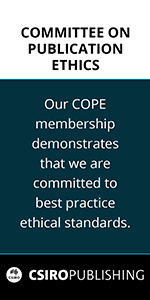Australian Journal of Primary Health
Volume 28
Number 2 2022
Patient activation and health literacy are essential drivers for self-management activities. However, there is a lack of evidence regarding the effectiveness of using chronic diseases self-management interventions targeting both factors. This systematic review found that patient activation- and health literacy-targeted interventions led to significant improvements in mental health status and physical activity level, but did not improve quality of life and health care utilisation. Strong associations between patient activation and health literacy levels were revealed.
Medical home models of care, including Australia’s Health Care Homes, have the potential to improve health service delivery. This consumer perspective study identified opportunities to improve model implementation, finding that those with uncommon chronic conditions may benefit the most. Learning from consumers supports policymakers, service providers and healthcare practitioners in the delivery of person-centred primary healthcare.
Socioeconomic disadvantage is a leading social determinant of health outcomes. Access to quality primary health care, including GPs, is essential in improving equitable access across socioeconomic groups. Practice location during vocational GP training is significantly associated with practice location of early career GPs, and policies promoting training in areas of greater socioeconomic disadvantage may contribute to the retention of Fellowed GPs in areas of highest need.
Measures to slow the COVID-19 pandemic have resulted in a rapid transition in allied health service delivery from face-to-face and hands-on input to telehealth and socially distanced intervention. This research explored the experience of allied health professionals as they adapted to this change. A number of factors influenced both the degree of, and satisfaction with, adaptation achieved and offer insight to support future crisis management planning including resource distribution and development.
Diabetes is one of the fastest growing chronic health concerns globally, and diabetes outcomes are poorer in rural and remote than metropolitan areas. In order to address the burden of diabetes in remote Australia, a visiting credentialled diabetes educator program was developed and analysed. Reporting of key diabetes indicators has increased in visiting credentialed diabetes educator practices, whereas HbA1c levels continue to rise. Further investigation and resource provision are required to address rising HbA1c levels in rural Australia.
Limited access to free, clean and refreshing tap water can increase reliance on sugar-sweetened beverages. This study found that access to clean, refrigerated and filtered drinking water is more likely in larger communities with a lower proportion of Aboriginal people, indicating that Aboriginal people living in smaller communities have their socioeconomic disadvantage compounded, potentially increasing reliance on sugar-sweetened beverages and widening the health gap between Aboriginal and non-Aboriginal people. Health promotion initiatives must take into consideration access to clean and refreshing tap water.
Concerns about people delaying accessing healthcare services were raised early in the COVID-19 pandemic. This paper explores young people’s perspectives on decisions to delay accessing care for their sexual and reproductive health, finding that although decreased sexual activity resulted in reduced need for care for some, others avoided seeking care despite experiencing symptoms or concerns about their health. Young people should be assured that their sexual and reproductive health remains a priority, even during a pandemic.
Emergency department presentations are increasing in Australia, leading to increased cost to the healthcare system and overcrowding. New community models for the management of non-life-threatening urgent conditions are being developed, but patients need to choose to use them. This study seeks to find factors associated with the choice of health service delivery venue for patients presenting to an emergency department, urgent care clinic and after-hours general practice to encourage patients to choose community options.
Vulnerable communities have the greatest need for primary care but experience disproportionate barriers to service access. We trialled a pop-up health service delivery model in two vulnerable communities in metropolitan Melbourne. Our evaluation suggests that the model was feasible and has the potential to both improve access for vulnerable communities and promote collaboration between service providers, adding to the evidence base regarding mobile and outreach projects for vulnerable communities.
Primary care professionals often report barriers to initiating advance care planning (ACP) and palliative care (PC), affecting patients’ end-of-life care experiences. This paper provides evidence to suggest that nurses working in general practice can be trained and are willing to initiate ACP and PC. By understanding barriers and facilitators to early implementation of the Advance Project model through a theoretical lens, changes were identified that could lead to successful implementation of ACP/PC assessment tools in general practice settings.
Alcohol and other drug use is common in Australia and causes serious health and well-being issues. Collaborative care between GPs and specialist alcohol and other drug services may improve this. This is the first Australian study to address collaborative care between GPs and alcohol and other drug services. The study shows that collaborative care is feasible in the Australian setting and suggests that it could help people who use alcohol and other drugs to access care and improve their health and well-being outcomes.
The burden of knee and hip osteoarthritis continues to rise in Australia. Conservative osteoarthritis joint management programs have been proposed as key services to improve pain and function in patients before definitive treatment (surgery), and this paper reports on designing and implementing such a service in northern New South Wales. Consultation with key stakeholders enabled the service to be tailored to local needs, with significant improvements in function, mobility and pain observed in an initial cohort of patients attending the service.
Miscarriage is a distressing event for women, who rely on their healthcare providers to offer them support, which is often felt to be inadequate. This study looked at what supports are needed after miscarriage, the timing of the support and who should be providing it, yielding multiple areas for improvement. Women wanted their healthcare providers to be more emotionally sensitive and proactive in offering support, including mentioning miscarriage earlier and providing more information and psychological support options.





